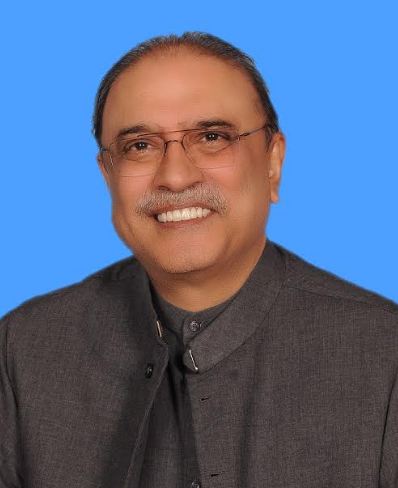
By: Malik Faisal Munir
In international relations, nations are considered successful when they maintain ties of trust, cooperation, and mutual respect with their closest neighbors. The friendship between Pakistan and China is globally recognized as an “iron brotherhood,” and for decades this relationship has stood as a unique example, not only for the region but also in global politics. President Asif Ali Zardari’s recent ten-day successful visit to China has further expanded this friendship, created new economic opportunities, and strengthened mutual trust between the two countries.
This visit came at a time when the geopolitical landscape of the world is rapidly changing, global power blocs are rising, and South Asia is facing extraordinary challenges. In such circumstances, the partnership between Pakistan and China is not just a source of support for each other but also a backbone for regional peace and development. While the world acknowledges the everlasting bond between Pakistan and China, the current global situation demands that this friendship be transformed into deeper, more practical cooperation. President Zardari’s visit has proven to be a major step in that direction.
President Asif Ali Zardari has now returned to Pakistan after completing his historic ten-day visit to China. He visited Chengdu, Shanghai, and Urumqi, where he held meetings with provincial leadership and discussed bilateral relations, economic cooperation, and trade. Projects under CPEC and future connectivity initiatives were also deliberated upon. This visit has further cemented the strategic partnership between Pakistan and China, with long-term positive effects expected to unfold in the years ahead.
In Chengdu, President Zardari was hosted at a dinner in his honor by Wang Xiaohui, Party Secretary of the CPC Sichuan Provincial Committee. First Lady Asifa Bhutto Zardari and Chairman Bilawal Bhutto Zardari were also in attendance, along with Pakistan’s Ambassador to Beijing Khalil Hashmi and China’s Ambassador to Pakistan Jiang Zaidong.
During his stay in Chengdu, President Zardari also met with Li Shulei, member of the Political Bureau and Minister of the Publicity Department. Addressing the second Golden Panda International Culture Forum, the President emphasized Pakistan’s full support for China’s vision of “civilization exchange and mutual learning,” highlighting its significance for sustainable development, regional stability, and inclusivity in global institutions. He reiterated that Pakistan-China friendship is a living example of mutual respect and cooperation.
In Shanghai, President Zardari met with Wu Lei, Chairman of Shanghai Electric, and later visited the company’s facilities. He was accompanied by First Lady Asifa Bhutto Zardari and PPP Chairman Bilawal Bhutto Zardari. The Chairman briefed the President on the company’s projects in Pakistan, including coal, energy, and coal-fired power plants in Thar. President Zardari invited Shanghai Electric to invest in Pakistan’s transmission and distribution systems and assured that any pending issues would be resolved amicably in the spirit of mutual cooperation. On this occasion, a Memorandum of Understanding (MoU) was signed for the establishment of a coal gasification plant in Thar—the first of its kind in Pakistan—which will not only address energy needs but also support the agriculture sector by producing fertilizer.
President Zardari also visited the Memorial of the First National Congress of the Communist Party of China in Shanghai, located in the historic French Concession area where the CPC held its first session in July 1921. He appreciated the preservation of this historical heritage.
Furthermore, he attended the signing ceremony of three MoUs between Pakistan and China in Shanghai. These agreements focused on the development of agriculture, environmental protection, and mass transit in Pakistan. The first MoU was related to a Controlled Agriculture Science and Education Park to enhance agricultural output and food security. The second was with Shennong College for establishing a vocational institute to provide farmers with modern technology and training. The third was on tire recycling, aimed at promoting eco-friendly waste management.
President Zardari also held meetings with the heads of Chinese environmental technology companies, who expressed interest in investing in Pakistan. He met with CPC Secretary Chen Jining, where discussions were held on technology, IT, artificial intelligence, and innovation. The President invited Chinese companies to invest in Special Economic Zones and the Gwadar Free Zone.
In Urumqi, President Zardari witnessed the signing of three more MoUs: one for innovation in the livestock industry, another for the establishment of a modern textile industrial park in Pakistan, and a third for the supply of fire trucks and emergency equipment. These agreements are expected to improve food security, industrial growth, exports, and disaster management capabilities in Pakistan.
At a time when Pakistan faces serious economic and political challenges, President Zardari’s visit to China is a clear message that Pakistan still has the ability to strengthen its standing in the global community. This visit sends out a successful signal that Pakistan is pursuing a balanced foreign policy while taking practical steps to secure its economic future.
President Asif Ali Zardari’s visit to China reflects Pakistan’s firm commitment to regional peace, development, and stability. It will be remembered as a milestone in Pakistan’s diplomatic history that has illuminated new pathways toward a brighter future. This visit not only injected fresh momentum into Pakistan-China relations but also instilled hope among the people of Pakistan that the doors to a better tomorrow are opening. At a time when the world is heading toward new power realignments, the close partnership of Pakistan and China remains a guarantor of peace, development, and stability in the region.

















